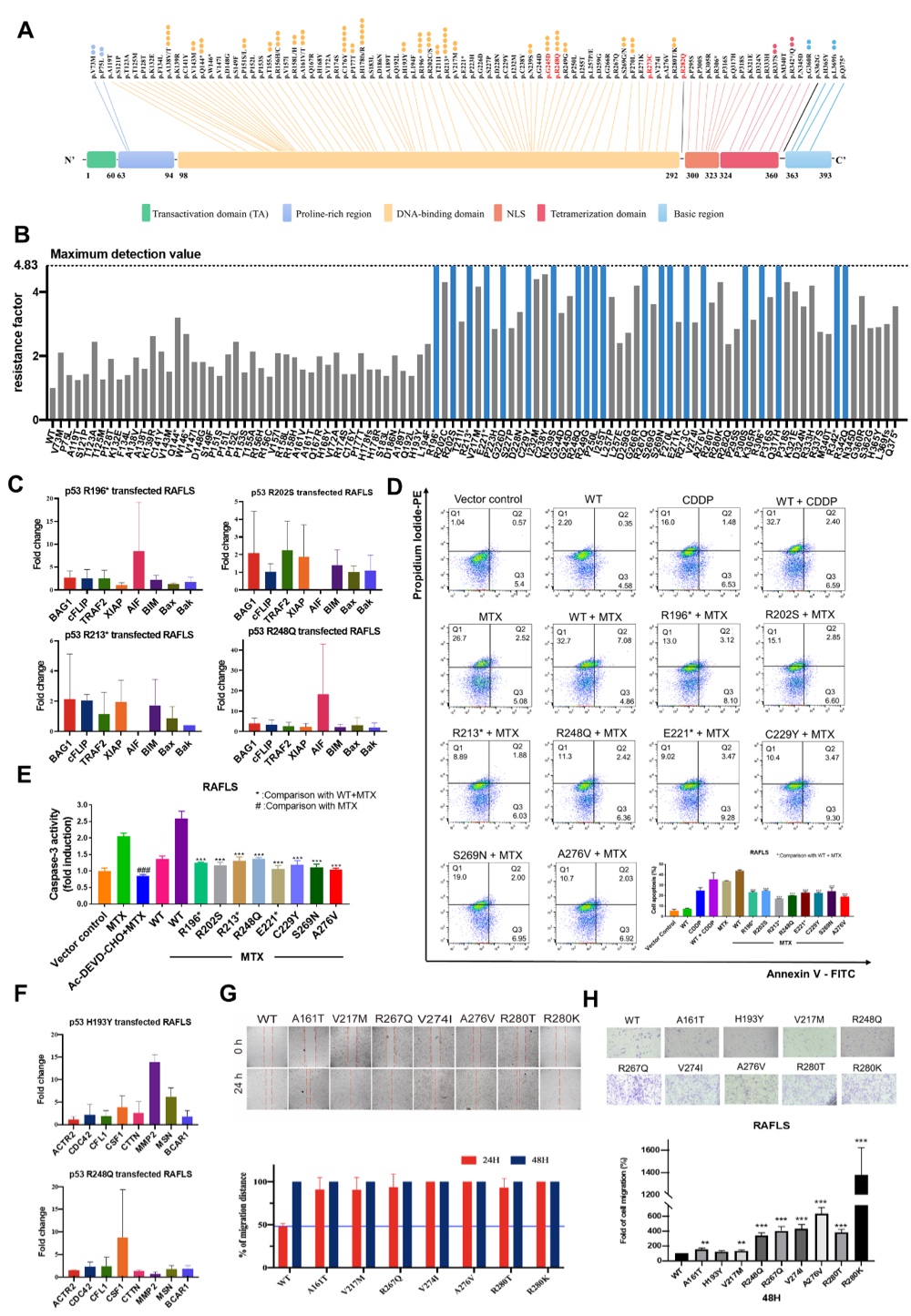Rheumatoid arthritis (RA) is a chronic inflammatory disease that affects joints and can cause irreversible structural damage if left untreated. Patients require long-term anti-arthritis therapy, which can lead to drug resistance and treatment failure. Therefore, understanding the mechanisms of drug resistance is crucial for improving RA treatment. Recently, a research team led by Professor Vincent Kam Wai Wong, an Executive Director of Dr. Neher’s Biophysics Laboratory for Innovative Drug Discovery in MUST published a new study. They successfully unraveled the potential mechanism of p53 tumor suppressor gene mutation in methotrexate (MTX) resistance in patients with rheumatoid arthritis (RA).
This study made several breakthroughs: (1) The researchers mapped the mutation spectrum of the p53 gene in RA patients, which had high coverage and included multiple hotspots of p53 mutations; (2) The first p53 mutant constructs library in RA patients was established using site-directed mutagenesis; (3) RA fibroblast-like synovial cells (RAFLS) were transfected with plasmids overexpressing all RA-related p53 mutants, and the cells' survival rate was measured to evaluate MTX cytotoxicity. The study found that most of the overexpressed p53 mutants in RAFLS produced an increased MTX resistance phenotype; (4) Several p53 mutants could upregulate anti-apoptotic proteins and downregulate pro-apoptotic proteins. Moreover, the cell apoptosis ratio and caspase-3 activity (an apoptosis biomarker) of multiple p53 mutants were at low levels, indicating the development of anti-apoptotic ability in RAFLS transfected with p53 mutants, and the drug resistant phenotype in RAFLS cells was driven by these mutations; (5) Some RA-related p53 mutants promoted the migration of RAFLS cells, as evidenced by the upregulation of migration markers and faster wound healing or invasion processes; (6) A p53 mutations-based drug-resistant platform and drug screening platform were established. Collectively, this study concluded that some p53 gene mutations may affect the therapeutic efficacy of MTX in treatment of RA (Figure 1).
The significance of this exploratory study lies in providing new insights into the study of drug resistance in RA, revealing new advances in the concept of p53 gene mutations, and new discoveries related to post-translational functions. This findings provides implications for guiding the treatment of RA patients with methotrexate resistance caused by p53 gene mutations, as well as for further development of anti-arthritis drugs targeting p53 mutations. The research work was published in Genes & Diseases (impact factor in 2021: 7.376; https://doi.org/10.1016/j.gendis.2023.02.007). Professor Vincent Kam Wai Wong is the corresponding author. Dr. Qiu Congling, Master's student Chan Tsz Wai Joyce, and Zhang Wei from the MUST are the co-first authors of this paper. This achievement was supported by an FDCT grant from the Macao Science and Technology Development Fund (Project No. 003/2019/AKP) and the Joint Fund of Wuyi University-Macau (No. 2019WGALH01).

图1: RAFLS中具有MTX耐药表型的p53突变体显示出凋亡和迁移表型的改变
